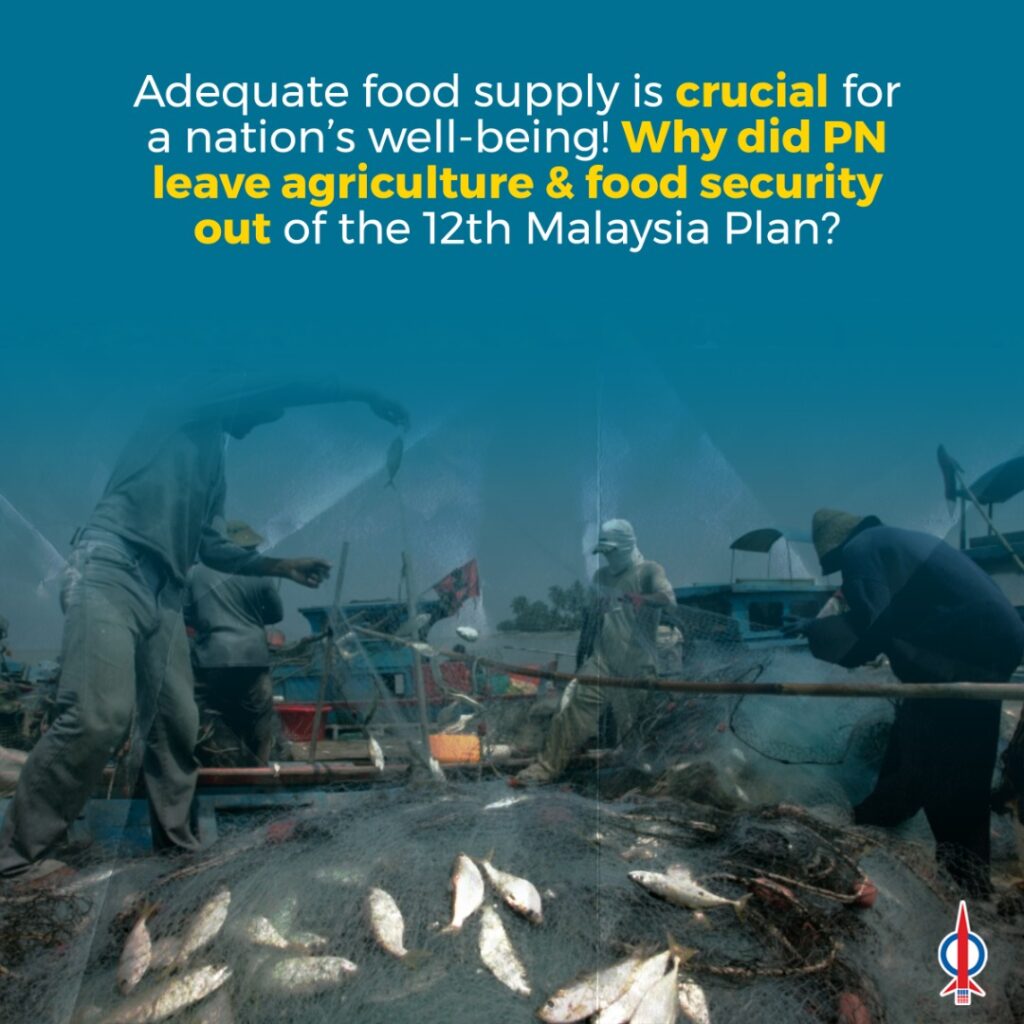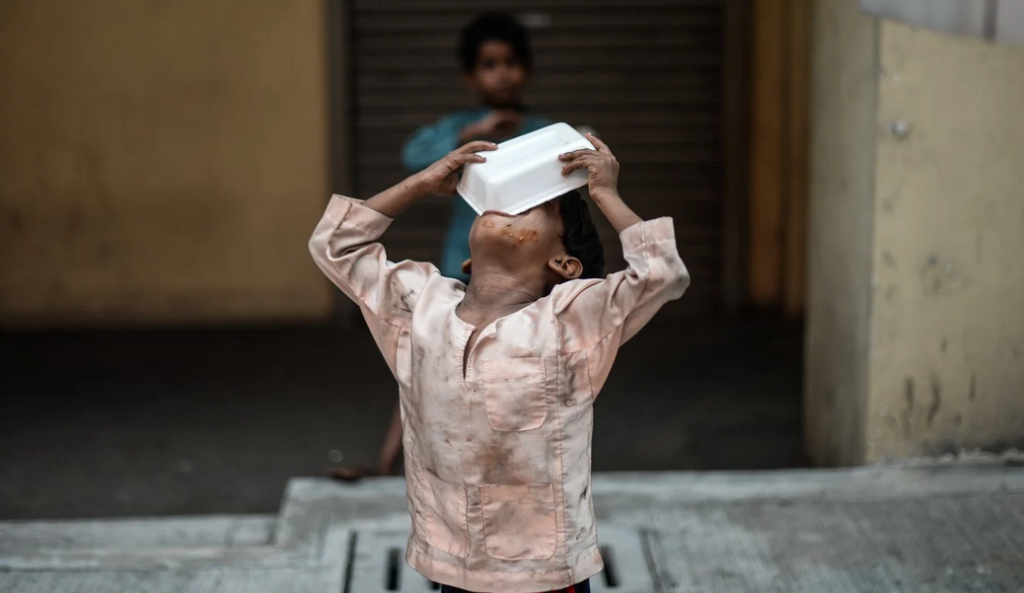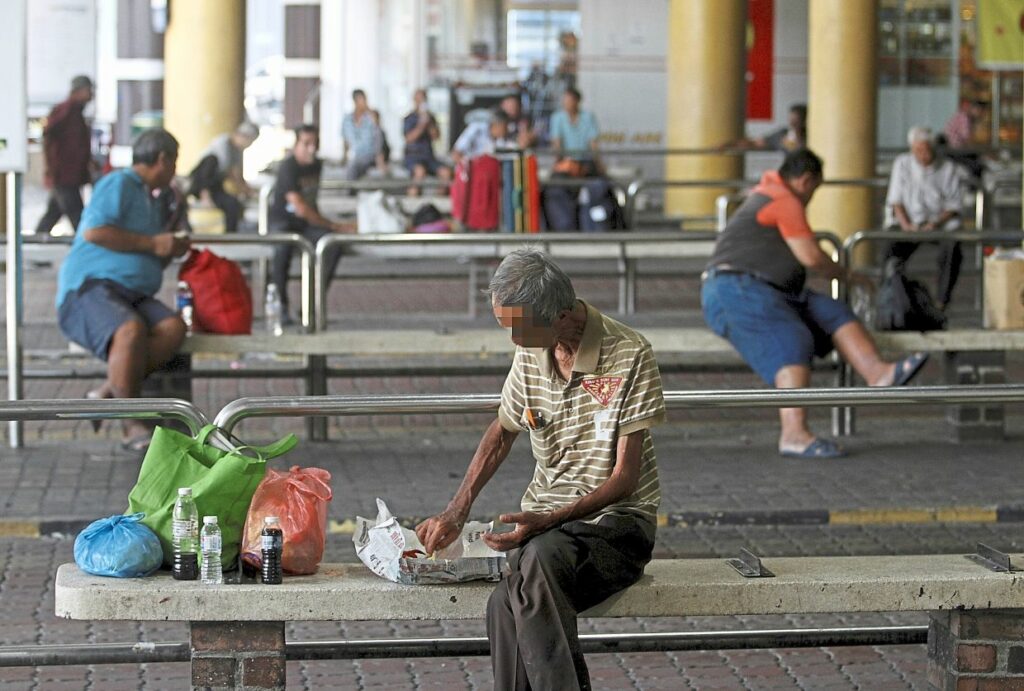
Press Statement
30th September 2021
Food Security Should be Incorporated as Part of Security Theme in 12th Malaysia Plan
Based on the newly released 12th Malaysia Plan, smart farming is listed as one of the eight strategic and high-impact industries under the first theme, namely Resetting the Economy, to become the new driver of economic growth. Nevertheless, agricultural development and food security are not incorporated as part of the second theme in the 12th Malaysia Plan, namely Strengthening Security, Wellbeing and Inclusivity.
While the government includes the healthcare system and the supply of quality affordable houses as part of the security theme, how can it overlook the agriculture sector which guarantees food security?
This reflects that the Economic Planning Unit (EPU), as the agency tasked with formulating the Malaysia Plan, has not fully understood the severe challenges to Malaysia’s food security wrought by the Covid-19 pandemic. Without taking into consideration various uncertainties, such as abnormal weather conditions, land conflicts, and labour shortage, the 12th Malaysia Plan failed to put food security as one of the priorities that will shape the upcoming development in the next 5 years.
In the 12th Malaysia Plan, smart farming is one of the eight strategic industries that aims at improving productivity and strengthening the level of food security in Malaysia. The scope of smart agriculture includes all aspects of agriculture, including crops, aquaculture and marine fishery as well as livestock. The government will implement various strategies to realize smart farming by adopting mechanised, automated, and smart management, improving the development of the agricultural community, reducing dependency on foreign workers as well as minimising environmental impact.
However, the government does not have a thorough understanding of the concept of post-pandemic agriculture and food security, for agriculture is not an industry that merely brings about economic development. The vulnerability and instability of food production and supply chain will lead to fluctuations in food supply and prices. If the situation worsens, the middle and lower classes will be increasingly unable to afford adequate, healthy, and nutritious food, thus exacerbating poverty and inequality and impacting social security and stability.

Malaysians have been going hungry but the PN government is completely out of touch
The agency that formulated the report did not realize that Malaysia is not food self-sufficient enough, where 70% of the food is produced locally while 30% of the food is imported. Apart from that, due to fluctuations in price indices in the market as well as high prices of healthy and nutritious food, the middle and lower class will be facing a heavier financial burden in the long term.
In the wake of anti-pandemic measures implemented by countries around the world, the global economy has slumped and revealed the vulnerability of food production and supply chain. As a result, the low-income group is the most severely affected community.

For instance, the white flag movement spawned when the movement control order was implemented in Malaysia proved that the low-income group couldn’t even obtain enough affordable food, let alone other healthy food that is more expensive. How can a country become a truly modern and developed nation, when the majority of its citizens are unhealthy and can’t afford healthy and nutritious food?

It should be noted that the Covid-19 pandemic is merely one of the emergencies. In the next five to ten years, it can be foreseen that various negative factors, such as the imminent climate change, natural disasters, regional conflicts, and economic stagnation, will continue to impact our food security ecosystem.
Based on the report entitled “The State of Food Security and Nutrition in the World 2021” published by the United Nations, ever since the outbreak of the pandemic, between 720 and 811 million people in the world faced hunger in 2020, while 118 million more people faced hunger in 2020 than in 2019. In 2020, almost 2.37 billion people didn’t have adequate food, which saw an increase of 320 million more people compared with 2019. These disturbing statistics show that both in terms of number and percentage, the number of people who are facing hunger is increasing sharply, while food insecurity is exacerbating.

The government should not regard agriculture merely as a high-impact industry that delivers monetary profits. In fact, changes in food security can bring about huge impacts on the security of the country. Also, the safety and stability of the food supply chain are closely connected and highly intertwined with the environment, climate, health, welfare, and human resources. As such, the government should proactively promote information sharing related to the food supply chain, exchange of experience, technological cooperation, and policy coordination at all levels.
Therefore, agriculture and food security should be incorporated in the 12th Malaysia Plan to show that the government will put great emphasis on the middle-term and long-term strategic planning of agriculture.
Chiong Yoke Kong
ADUN for Tanah Rata



